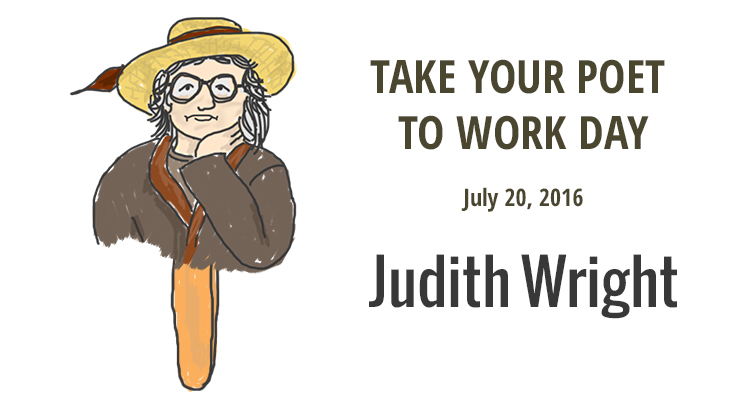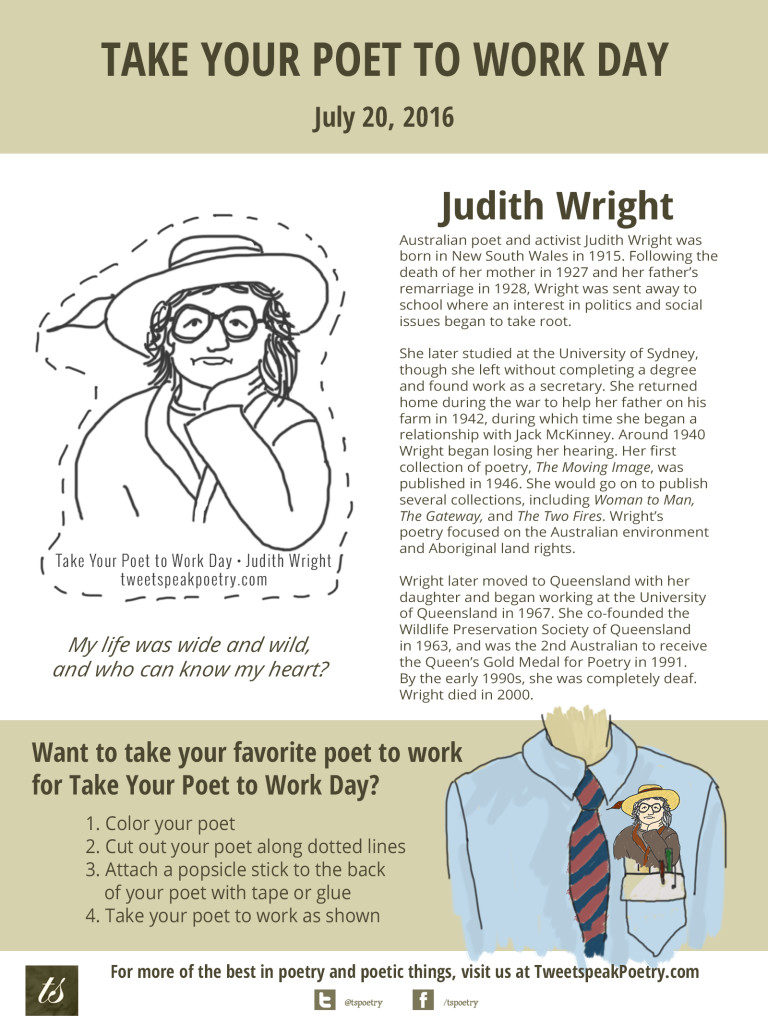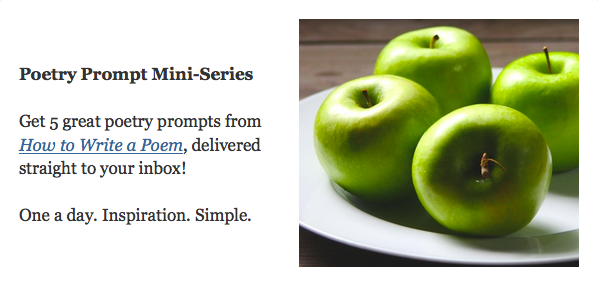Summer is one of the happiest seasons at Tweetspeak Poetry, because it is the season of Take Your Poet to Work Day (or, you know, to the beach). It’s one thing to start every day with a poem (we recommend it). But how great would it be to start your day with a poet? On Take Your Poet to Work Day, we encourage people around the world to take their favorite poet to work for the day.
Take Your Poet to Work Day is coming July 20, 2016
To help you play and celebrate with us, we’re releasing poets each week in a compact, convenient format you can tuck in your pocket, tool belt, or lunchbox. We started our celebration three years ago with Sara Teasdale, Pablo Neruda, T. S. Eliot, Rumi, Edgar Allan Poe, and the reclusive Emily Dickinson (for folks who work at home). We even released a full collection, The Haiku Masters: Matsuo Basho, Yosa Buson, and Kobayashi Issa. In 2014, we added Langston Hughes, Adrienne Rich, John Keats, William Butler Yeats, Christina Rossetti and the beloved 20th-century American poet, Sylvia Plath. And last year, we introduced the Bard of Avon William Shakespeare, beloved poet Maya Angelou, and iconic American poet Robert Frost, Russian poet Anna Akhmatova, Polish poet Wisława Szymborska, and America’s poet, Walt Whitman.
Because you can never have too many poets in your lunch box (or your desk drawer), we have a new collection of poets to release this year, including English Romantic poet William Wordsworth, Elizabeth Barrett Browning, Irish poet Seamus Heaney, and English poet and novelist Emily Brontë. This week, meet Australian poet and activist Judith Wright.
Take Your Poet to Work: Judith Wright
Get your own downloadable version of Take Your Poet to Work Day Printable – Judith Wright that you can print, color and cut out for the big day.
Australian poet and activist Judith Wright was born in New South Wales in 1915. Following the death of her mother in 1927 and her father’s remarriage in 1928, Wright was sent away to school where an interest in politics and social issues began to take root.
She later studied at the University of Sydney, though she left without completing a degree and found work as a secretary. She returned home during the war to help her father on his farm in 1942, during which time she began a relationship with Jack McKinney. Around 1940 Wright began losing her hearing. Her first collection of poetry, The Moving Image, was published in 1946. She would go on to publish several collections, including Woman to Man, The Gateway, and The Two Fires. Wright’s poetry focused on the Australian environment and Aboriginal land rights.
Wright later moved to Queensland with her daughter and began working at the University of Queensland in 1967. She co-founded the Wildlife Preservation Society of Queensland in 1963, and was the 2nd Australian to receive the Queen’s Gold Medal for Poetry in 1991. By the early 1990s, she was completely deaf. Wright died in 2000.
Woman to Man
The eyeless labourer in the night,
the selfless, shapeless seed I hold,
builds for its resurrection day—
silent and swift and deep from sight
foresees the unimagined light.
This is no child with a child’s face;
this has no name to name it by;
yet you and I have known it well.
This is our hunter and our chase,
the third who lay in our embrace.
This is the strength that your arm knows,
the arc of flesh that is my breast,
the precise crystals of our eyes.
This is the blood’s wild tree that grows
the intricate and folded rose.
This is the maker and the made;
this is the question and reply;
the blind head butting at the dark,
the blaze of light along the blade.
Oh hold me, for I am afraid.
— Judith Wright
Post and illustrations by LW Lindquist.

Click to get 5-Prompt Mini-Series
- Earth Song Poem Featured on The Slowdown!—Birds in Home Depot - February 7, 2023
- The Rapping in the Attic—Happy Holidays Fun Video! - December 21, 2022
- Video: Earth Song: A Nature Poems Experience—Enchanting! - December 6, 2022



[…] including William Wordsworth, Elizabeth Barrett Browning, Seamus Heaney, and Emily Brontë, Judith Wright, and Henry Wadsworth […]